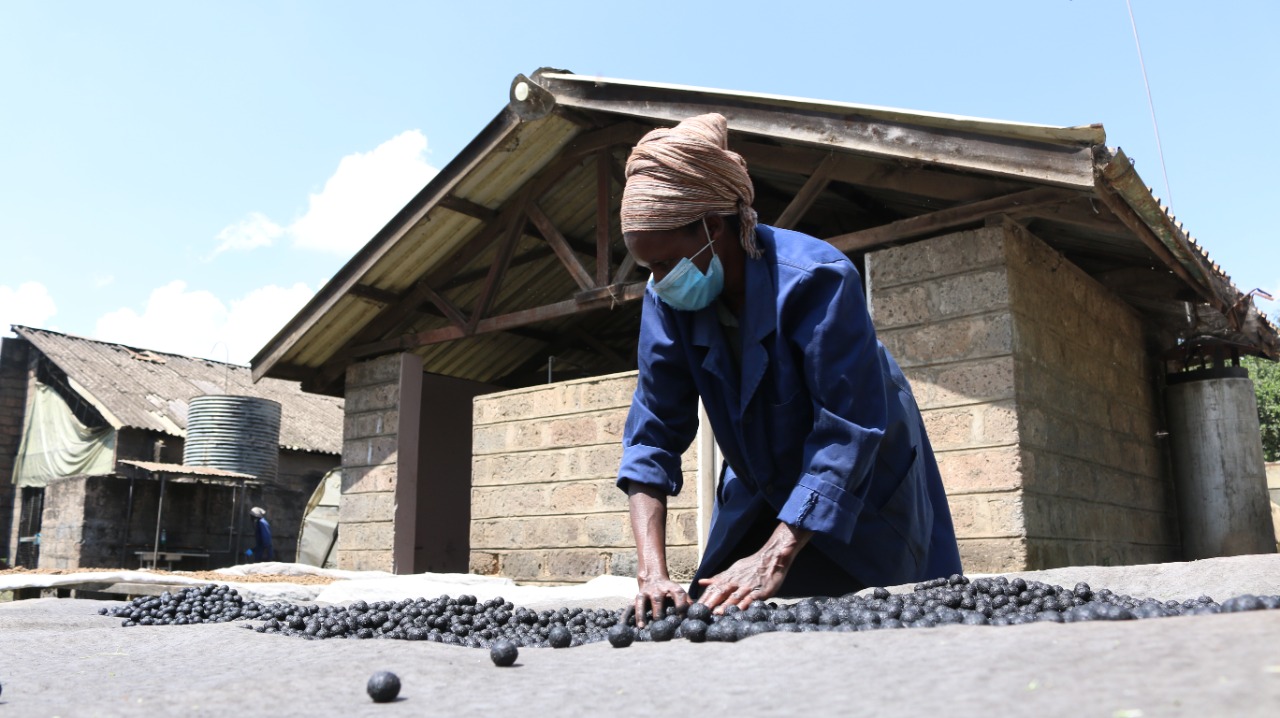NAIROBI, Kenya Jan 9_Deforestation in the country has been a century problem with efforts to turn around the situation bearing minimal changes, at least if the statistics of the forest cover in the nation is anything to go by.
Kenya has an estimated forest cover of 7.24 percent against the recommended global minimum of 10 percent.
When Teddy Kinyajui, a farmer, was contracted to plant trees in Narok, the hustle of getting seedlings to the destination led to him to up with an innovation that is seeking to reverse deforestation.
“I was delivering tree seedlings and my vehicle overheated and broke down on my way to Narok and I had to buy a new engine. I wondered why I was taking almost a ton of soil halfway across the country when people want trees. Then the issue of plastic bags, was also terrible. That’s when we decided to come up with seed balls,” Kinyanjui said.

When Teddy Kinyajui, a farmer, was contracted to plant trees in Narok, the hustle of getting seedlings to the destination led to him to up with an innovation that is seeking to reverse deforestation.
The innovation of seed balls by Kinyajui and his friend Elsen Karstad slowly helped restore the country’s depleted forest. You may ask what are ‘seed balls’. They may mistakenly appear like animal dung but these are seed coated with charcoal dust.
The innovation of seed coating helps protect the seeds from animals and harsh climatic conditions.
“We have been working with Kenya Forestry Research Institute (KEFRI) to manufacture indigenous tree seeds. We believe in the nature system. Seedballs can sit on the ground for months or a year, then they will be able to germinate once it rains. This is not entirely new, in ancient Egypt they used mud but we are using charcoal. The essence is to give the seed survival space,” Kinyajui said.
For Seedballs in Kenya, their innovation is a closed-loop cycle as the dust used to coat the seeds is a byproduct of the charcoal industry, which itself is a driver of deforestation.
Over 15 million seeds have been planted with the distribution mechanism being the interesting part of the initiative.
“The seed balls are not actually heavy. We just throw them away everywhere we see there is deforestation, so it is not a big deal. We use helicopters and even school-going children who throw the seeds using seed balls,” Kinyajui said.
Seedballs only contain indigenous species, mainly varieties of acacia, which are mostly felled for the quality of its wood. More than half the distributed seed balls germinate and eventually become mature trees. As the trees grow, their roots will help to anchor them to the soil.
“In very wild places it is about 5 to 10 percent success rate. In your grandma’s house, it goes up to 40 percent. In the last five years, I have been able to plant more trees as compared to 20 years ago. Logistics is much easier because in a small box you can carry 100 tree seeds,” said Kinyajui.
The government seeks to increase the cover to at least 10 percent, a move that will see two billion trees planted. This will cost Sh48 billion.
Kinyajui insists that more needs to be done to ensure an ambitious initiative to stop any further decline of its forest cover and restore it to about 10%, a target expected to be met by 2022.
“In this Instagram generation, everything is so fast and so quick. You want your tree to be ten-foot-tall tomorrow morning and forget to weed it or whatever. Nature processes are a bit slow and it takes a little longer,” he pointed out.
This is one of the many initiatives that are aimed at restoring the country’s forest cover by halting the declining forest and stop the devastating effects of climate change.
“We need to make the issue of environment to become more of a green-collar job. If we are able to make sustainable income through environmental jobs, it’s a double-win situation. There is massive opportunity to make a change,” noted Kinyajui.












































